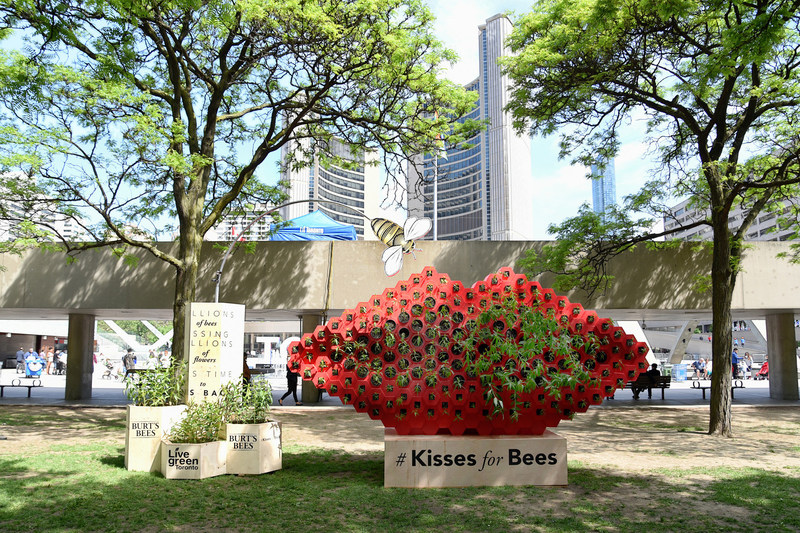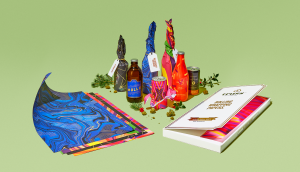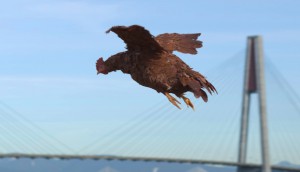Kisses for bees
Burt's Bees is puckering up to help save the bees with a pair of big, red lips at Toronto's City Hall.

Pucker up, guys. The bees need our help.
If you weren’t already aware — that is, if your head was in the clouds when Honey Nut Cheerios made its mascot go poof in an effort to bring awareness of the insects’ plight — many of the little workers are missing in action, with their populations continue to decline, thanks to climate change, pesticides and new viruses.
So, being who Burt’s Bees is, and what its lip balms are made of (natural ingredients like sticky beeswax), the brand decided to do something about this.
Marking National Pollinator Week, Burt’s Bees has set up an installation, shaped like a pair of big, red, kissable lips, and sprouting native wildflowers. Essentially, the idea is to give Toronto bees a big fat kiss as they provide pollination to the plants and spread bio-diverse love. The lips are stationed at City Hall, and will continue to mark Toronto’s landscape until June 24. A second local bee habitat will be roll out in Vancouver later this month, with the flowers used in the installations to be replanted at a later date.
The #KissesForBees initiative are being supported by limited edition lipsticks of the same name, with the brand planting 100 wildflowers for every one sold.
“From the very beginning, Burt’s has been a values-led brand, committed to providing natural products in a sustainable way,” said Matthew Kohler, VP, Marketing at Burt’s Bees Canada in a release. “This is especially true in our commitment to bee health. Through our partnership with Wildlife Preservation Canada, we will plant wildflowers all across Canada, creating healthy environments for pollinators who depend on them for survival. A small purchase can make a big difference in our world.”




















[…] named Canada’s first Bee City. Other brands are also taking this on, with Burt’s Bees’ #KissesforBees campaign kicked off this year with a special lip-shaped art installation, sprouting native […]